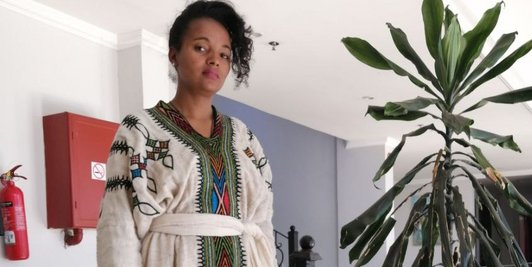

The aim of the PhD research was to gain insights into pesticide use practices, exposure of women smallholder farmers to pesticides, and their negative impact on their health, with reference to Africa and an empirical focus on Ethiopia. A combination of methods was used, ranging from literature review on identifying the state of the art, to quantitative and qualitative data collection. Although the concept of safer pesticide use is central to current sustainability research and policy discourses, pesticide use on smallholder farms currently contributes to serious risks not only to human health, but also to environmental and agricultural sustainability. Framed by social practice theory, the research provides detailed insights into pesticide use practices in female-headed (i.e. divorced, widowed, and unmarried) farms. Social practice theory was applied, using materials, competencies and meanings as interrelated elements of an interpretative framework. As the focus of inquiry in practice theory shifts attention from individual attitudes, behaviours and choices to practices, we expand our understanding of the institutions, routines, norms, materials and competencies - aspects most responsible for the emergence of (non)-sustainable pesticide use practices among female-headed households (FHHs).
The findings of the research indicate that pesticide use in FHHs often violates safety recommendations (e.g., use of overdoses, cocktails, frequent application, unsafe storage and disposal, using pesticides on harvested crops, application with bare hands, etc). These unsafe practices were mainly determined by the materials, competencies, and meanings. For example, most FHHs lived and worked in difficult conditions with limited resources (e.g. income, labour and time) to carry out sustainable practices. Many were illiterate, unable to understand pesticide labels. Access to agricultural extension services was gender discriminatory. FHHs were ignored by policy, research and extension, even though they are affected in many ways. Therefore, instead of blaming FHHs for not doing what was appropriate, we need to keep our eyes on the existing materials, competencies and meanings that forced them to adopt unsafe practices. Research raises awareness of change in society at large (farmers, extension workers, consumers, researchers, policymakers, development actors) and provides deep insights into the mechanisms of pesticide-free food and how to avoid health and environmental conflicts. It can also contribute to better living conditions for women and their children.
I am very grateful to the APPEAR programme for the scholarship to pursue my PhD studies in Austria, which opened doors not only for my personal and professional development but also for capacity development of my home institution. During the research, I explored different topics of interest and learned a variety of new concepts and explored theories that provided me with relevant knowledge and insights that can be replicated in my home institution. By participating in various projects, research can make an important contribution to science and change society in general. My experience in Austria has given me the opportunity to meet new people, learn new cultures or languages that help me build my social networks and thus deepen my global perspectives, and insights and develop my future career skills. The successful completion of my PhD studies, as a student and mother of four children, would not have been possible without the support of the OeAD. The APPEAR colleagues were always willing to support me and were available whenever I needed them. Furthermore, the smooth relationship with my supervisor, Prof. Bernhard Freyer, who was willing to support me both academically and personally, was an important source of inspiration throughout my studies. I feel privileged and proud to be his student and always thank God for him.
Birtukan Atinkut Asmare, from Ethiopia, holds a bachelor’s degree and a master’s degree in History from Bahir Dar University, Ethiopia. In 2015, she completed another master’s degree in Disaster Risk Science and Sustainable Development at the same institution. Prior to her PhD studies, she was a lecturer in the Department of Disaster Risk Management and Sustainable Development, Bahir Dar University. In 2016, Birtukan has been promoted to assistant professor and served as vice director of the Institute of Disaster Risk Management and Food Security Studies at Bahir Dar University. In January 2023, she received her PhD in Social and Economic Sciences at the University of Natural Resources and Life Sciences, Vienna.
Publications:
Birtukan Atinkut Asmare, Bernhard Freyer and Jim Bingen (2022). Women in agriculture: Pathways of pesticide exposure, potential health risks and vulnerability in sub-Saharan Africa. Environmental Sciences Europe, 34(89), pp. 1-14. https://doi.org/10.1186/s12302-022-00638-8
Birtukan Atinkut Asmare, Bernhard Freyer and Jim Bingen (2022). Pesticide use practices among female-headed households in the Amhara region, Ethiopia. Sustainability, 14(22), pp. 1-26. https://doi.org/10.3390/su142215215

